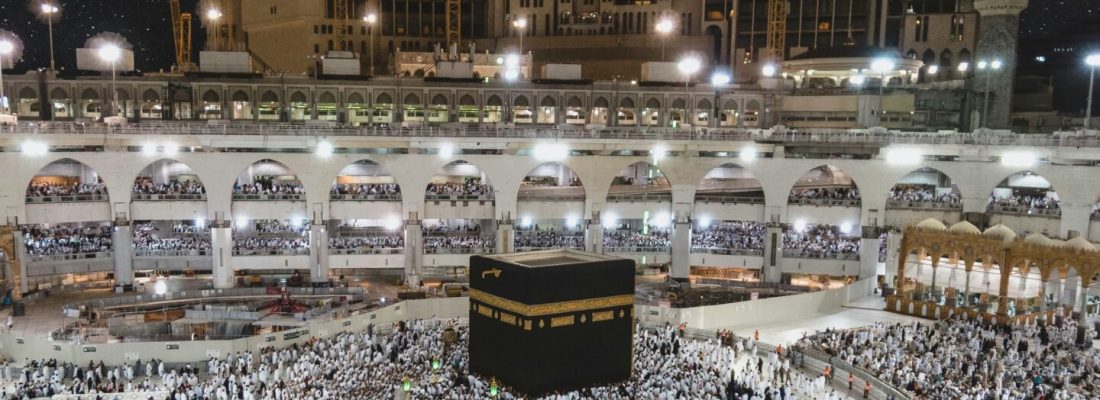Dhul Hijjah: More Than Just Hajj
Written by: Ustadh Shafi Ahmed

Dhul Hijjah is the twelfth and final month of the Islamic calendar and one of the most sacred times of the year. It is the month of Hajj—the pilgrimage to the House of Allah in Makkah—and contains the first ten days which are incredibly beloved to Allah (SWT).
The Prophet Muhammad (ﷺ) said:
“There are no days in which righteous deeds are more beloved to Allah than these ten days.”
The companions asked: “Not even jihad in the path of Allah?” He (ﷺ) replied:
“Not even jihad in the path of Allah, except for the man who goes out with his life and wealth and returns with neither of them.” (Bukhari)
He (ﷺ) also said:
“The best days of this world are the ten days [of Dhul Hijjah].”
Most scholars agree that these days are even greater in reward than the last ten days of Ramadan, except that Laylatul Qadr in Ramadan holds exceptional value equivalent to 1,000 months. Ibn ‘Abbas (RA) said, “The reward for good deeds during these days is multiplied 700 times.”
What is the Month of Hajj and Who Is It For?
Dhul Hijjah is known as the month of Hajj, but its blessings are not limited to those performing the pilgrimage. While Hajj is the greatest act during this month for those who are able, the virtues of these ten days are for every believer.
Hajj teaches sacrifice, submission, and unity. Even if we are not performing Hajj, we should reflect on its meanings and increase our own worship, seeking nearness to Allah in all forms.
Ibn Jubayr (RA) used to say, “Do not turn off your lights during the nights of the first ten days [of Dhul Hijjah],” highlighting how special and spiritually active these nights are.
What Can We Do in Dhul Hijjah?
1. Perform Hajj
The greatest act of worship during Dhul Hijjah is, of course, performing Hajj. The Prophet (ﷺ) said:
“Islam is based on five pillars: to bear witness that there is no god but Allah and that Muhammad is His Messenger, to establish prayer, to give zakat, to fast during Ramadan, and to perform Hajj if able.” (Bukhari)
Allah says:
“Indeed, the first House [of worship] established for mankind was that at Makkah – blessed and a guidance for the worlds.” (Surah Aali ‘Imran 3:97)
If we are not performing Hajj, we should still embody its values—submission, sacrifice, and devotion.
2. Fasting
The Prophet (ﷺ) used to fast the first nine days of Dhul Hijjah. If you can, try to fast all nine days. At the very least, fast on the Day of Arafah (9th Dhul Hijjah), about which the Prophet (ﷺ) said:
“It expiates the sins of the previous year and the coming year.” (Muslim)
3. Offer Qurbani (Sacrifice)
During these days, the act of Qurbani (sacrifice) is deeply beloved to Allah. The Prophet (ﷺ) said:
“There is nothing dearer to Allah during the days of Qurbani than the sacrificing of animals.” (Tirmidhi)
4. Make Sincere Tawbah (Repentance)
These are days of returning to Allah and seeking his forgiveness as the best of creation would ask Allah for forgiveness, we as laymen truly need to be constantly asking Allah for his forgiveness, as Allah has said to us directly as believers to repent as we will make mistakes but the best way to make up for this is sincerely repenting to Allah, Allah says:
“O you who believe! Turn to Allah with sincere repentance.” (Surah At-Tahrim 66:8)
5. Increase in Dhikr (Remembrance)
Keep your tongue moist with the remembrance of Allah. Now is the time to start getting into a routine with your morning and evening adhkar if you haven’t been doing these already, and incorporating into our daily activities such as when eating, sleeping and drinking. Dhikr protects us in our daily lives, erases sin and repels punishment, when you do dhikr, you are filled with inner solace and peace as Allah The Almighty says:
“Unquestionably, by the remembrance of Allah do hearts find peace.” (Surah Ar-Ra’d 13:28)
Morning and evening adhkar, tasbeeh (SubhanAllah), tahmeed (Alhamdulillah), takbeer (Allahu Akbar), and tahleel (La ilaha illallah) should be regular practices.
6. Make Abundant Du’a
We should constantly be asking from Allah, make yourself a daily Du’a list with what you are seeking from Allah, and ask from him, don’t feel shy when it comes to asking the giver as The Prophet (ﷺ) said:
“There is nothing more honorable to Allah than du’a.” (Tirmidhi)
Allah promises:
“When My servants ask you concerning Me, indeed I am near. I respond to the call of the caller when he calls upon Me…” (Surah Al-Baqarah 2:186)
Take 5 minutes before each salah—especially between adhan and iqamah—to make heartfelt du’a. This is a blessed time the Prophet (ﷺ) told us Allah accepts our prayers.
7. Recite the Qur’an
The Qur’an is a source of guidance:
“This is a Book in which there is no doubt, a guidance for the God-conscious.” (Surah Al-Baqarah 2:2)
“We relate to you, [O Muhammad], the best of stories.” (Surah Yusuf 12:3)
Recite and reflect upon its meanings.
8. Recite the Takbeer Tashreeq
From Fajr on the 9th of Dhul Hijjah to Asr on the 13th, recite after every fard salah:
اللَّهُ أَكْبَرُ اللَّهُ أَكْبَرُ لَا إِلَهَ إِلَّا اللَّهُ وَاللَّهُ أَكْبَرُ اللَّهُ أَكْبَرُ وَلِلَّهِ الْحَمْدُ
“Allah is the greatest, Allah is the greatest, there is no god but Allah. And Allah is the greatest, Allah is the greatest and to Allah belongs all praise.”
This is wajib according to many scholars—whether praying alone or in congregation.
These first ten days of Dhul Hijjah are a gift from Allah—an opportunity to cleanse our hearts, increase our worship, and reconnect with Him. Let us not waste a moment.
Whether it’s your prayer, fasting, dhikr, Qur’an, or charity—make the intention, start small, and stay consistent. These days are beloved to Allah, and so should they be to us.
May Allah allow us to witness these days and accept our efforts. Ameen

